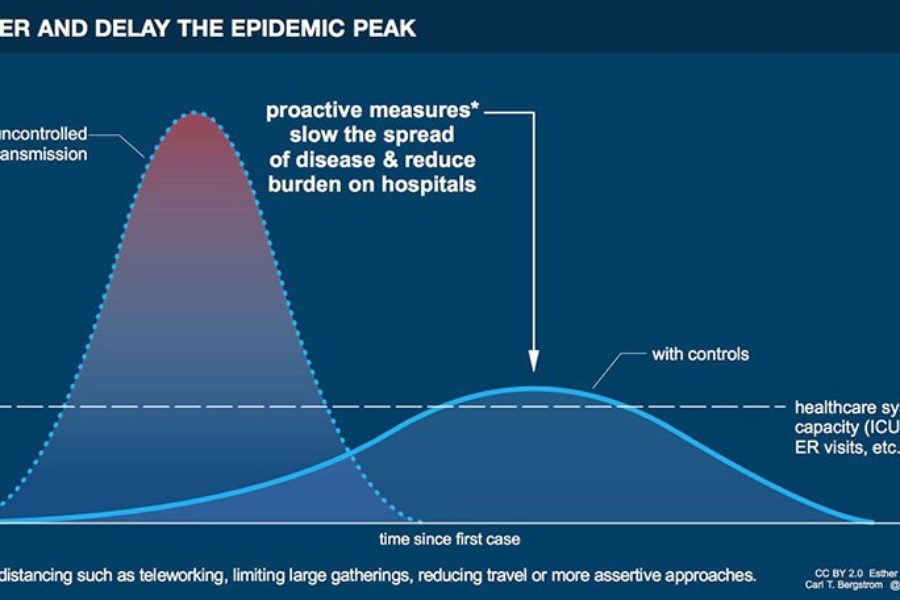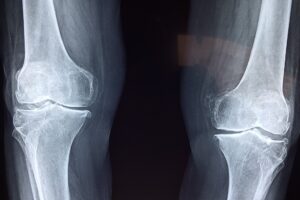Right now, people around the globe are making changes. Some of those changes have been voluntary, being motivated by our public health experts on infectious disease. People are washing their hands more than usual (but this increase puts us around where we should be anyway) and implementing social distancing in a tried and true (one only needs to look at a variety of Asian nations that took action early on and helped to halt the exponential growth and compare it to Italy) effort to #FlattenTheCurve. I can’t express enough how important it is to #FlattenTheCurve so our health care system can be saved from a tsunami of cases which will overwhelm it. This goes far beyond some health care workers having to work overtime for a few months. Some will inevitably die due to the risks they experience every day. Other people will die needlessly due to the lack of resources that will be available as more and more health care workers struggle to keep up. This means deaths will increase for all sorts of issues from chronic disease exacerbation, to acute injuries that don’t get treated in a timely manner…not just from COVID-19.
This has left many people understandably freaked out. Our nation’s response has been sluggish and the President’s inability to grasp the magnitude of the situation while denying the role he has played in stoking fear is at least partially to blame for the massive tanking of the stock market. We now know that young people are suspected to be a principle driver of this disease’s spread. As of March 19th, some estimations reveal that nearly 40% of young people end up getting hospitalized for the disease. So while survival rates are high right now among young people because, when given ventilators, oxygen, and other medical attention, they have the capacity to get through it, this will not be the case in a few weeks if we don’t flatten the curve. This will be another consequence of the general population not taking this virus and flattening of the curve seriously.
So what can we do?
There is a lot of fraud and misinformation being peddled by sales people for a variety of products purported to help prevent this disease. So far, there is no known cure or vaccine and so all we really have to put our minds at ease is to practice social distancing, hand washing, cleaning of frequently touched surfaces, and diet and life style changes that could potentially help.
Within the diet and lifestyle realm there are a few good rules of thumb, but remember, virtually no studies have been done on COVID-19 specifically and so we are relying on evidence for how food and nutrients may help in the treatment of general immunity and health. Other theories are based on in-vitro (lab-petri dish/test tube) studies that have never been tested on humans in randomized controlled trials. I do my best to stick to studies done on humans but occasionally there is a need to experiment and give treatments that have only been tested in labs a try. If you can afford these interventions and they don’t prevent you from taking measures to stop the spread of the virus, and have been proven to not cause harm, then it may be worth giving a try. More on this will come with future articles.
There are a bounty of studies showing how foods like fruits, vegetables, and fiber found in whole grains, nuts/seeds, and legumes can provide a variety of health benefits in general.1 When it comes to the healing power of plant foods there are far more nutrients to discuss then we have time to here. The important fact to remember is that phytonutrients come from plant foods exclusively. According to Gupta and Prakash (2014), “Phytonutrients are the plant nutrients with specific biological activities that support human health. Some of the important bioactive phytonutrients include polyphenols, terpenoids, resveratrol, flavonoids, isoflavonoids, carotenoids, limonoids, glucosinolates, phytoestrogens, phytosterols, anthocyanins, ω-3 fatty acids, and probiotics. They play specific pharmacological effects in human health such as anti-microbial, anti-oxidants, anti-inflammatory, antiallergic, anti-spasmodic, anti-cancer, anti-aging, hepatoprotective, hypolipidemic, neuroprotective, hypotensive, diabetes, osteoporosis, CNS stimulant, analgesic, protection from UVB-induced carcinogenesis, immuno-modulator, and carminative.”2
It’s clear that plant foods have a plethora of nutrients known to promote health and well-being. In addition, we also know that processing of plant foods can deactivate many of these chemicals or remove them from the food altogether.3 This is at least part of the reason why greater intakes of processed, refined, and fast foods typically lead to poor health outcomes. Right now, with everyone doing their utmost to try and stay healthy to maintain their immune shield it makes sense to focus on whole, mostly plant foods. In addition, most junk foods are far from satiating and so not only do junk, fast, processed, and refined foods not do you any favors with immune health, they will also lead to a blood sugar spike and crash that will leave you craving for more food not long after eating.
Just as foods can impact our immune system, so can our mental health. A University of Eastern Finland study showed that stress in children from adverse childhood experiences and sleep issues interferes with immune system regulation. The study also discovered that major depressive disorder has an impact of immune functioning. Other studies have also shown the clear link between stress, mental health, and its impact on immune function.4,5,6,7 This is why it’s important to find your mental health practice(s) of choice and fully embrace them, so long as you are maintaining social distancing and are taking proper precautions.
So when you are purchasing your foods, do your best to buy more whole plant foods. While fresh is best, I have written before about how frozen foods are a great alternative. If canned is all you can afford, then do your best to buy as many vegetables as you can while taking it easy on processed canned junk food such as Chef Boyardee, or boxed foods like Craft Mac and Cheese.
If your insurance allows visits to a nutritionist, now is a great time. While many nutritionists have closed their offices, most are taking clients online via HIPPA compliant virtual platforms. Now is a great time to make use of these resources, as doctors and nurses have their hands full and have less time than ever to help us make dietary changes for our health. Unlike the various health gurus online that may not be qualified to give out the advice they are giving or that don’t know you individual needs, nutritionists in the State of Washington must have at least a Master’s degree in nutrition to be certified by the state to practice nutrition and can take your individual needs into consideration. Make use of their services.
References:
1. Slavin, J. L., & Lloyd, B. (2012). Health benefits of fruits and vegetables. Advances in nutrition (Bethesda, Md.), 3(4), 506–516. https://doi.org/10.3945/an.112.002154
2. Gupta, C., & Prakash, D. (2014). Phytonutrients as therapeutic agents. Journal of Complementary and Integrative Medicine, 11(3). doi:10.1515/jcim-2013-0021
3. Nicoli, M. ., Anese, M., & Parpinel, M. (1999). Influence of processing on the antioxidant properties of fruit and vegetables. Trends in Food Science & Technology, 10(3), 94–100. doi:10.1016/s0924-2244(99)00023-0
4. Morey, J. N., Boggero, I. A., Scott, A. B., & Segerstrom, S. C. (2015). Current Directions in Stress and Human Immune Function. Current opinion in psychology, 5, 13–17. https://doi.org/10.1016/j.copsyc.2015.03.007
5. Edwards, K.M., Burns V.E., Reynolds, T., Carroll, D., Drayson, M., & Ring, C. (2006). Acute stress exposure prior to influenza vaccination enhances antibody response in women. Brain, Behavior, and Immunity, 20:159-68.
6. Glaser, R., Sheridan, J. F., Malarkey, W. B., MacCallum, R. C., & Kiecolt-Glaser, J. K. (2000). Chronic stress modulates the immune response to a pneumococcal pneumonia vaccine. Psychosomatic Medicine, 62, 804-807.
7. Glaser, R., Robles, T. F., Malarkey, W. B., Sheridan, J. F., & Kiecolt-Glaser, J. K. (2003). Mild depressive symptoms are associated with amplified and prolonged inflammatory responses following influenza vaccination in older adults. Archives of General Psychiatry, 60, 1009-1014.







